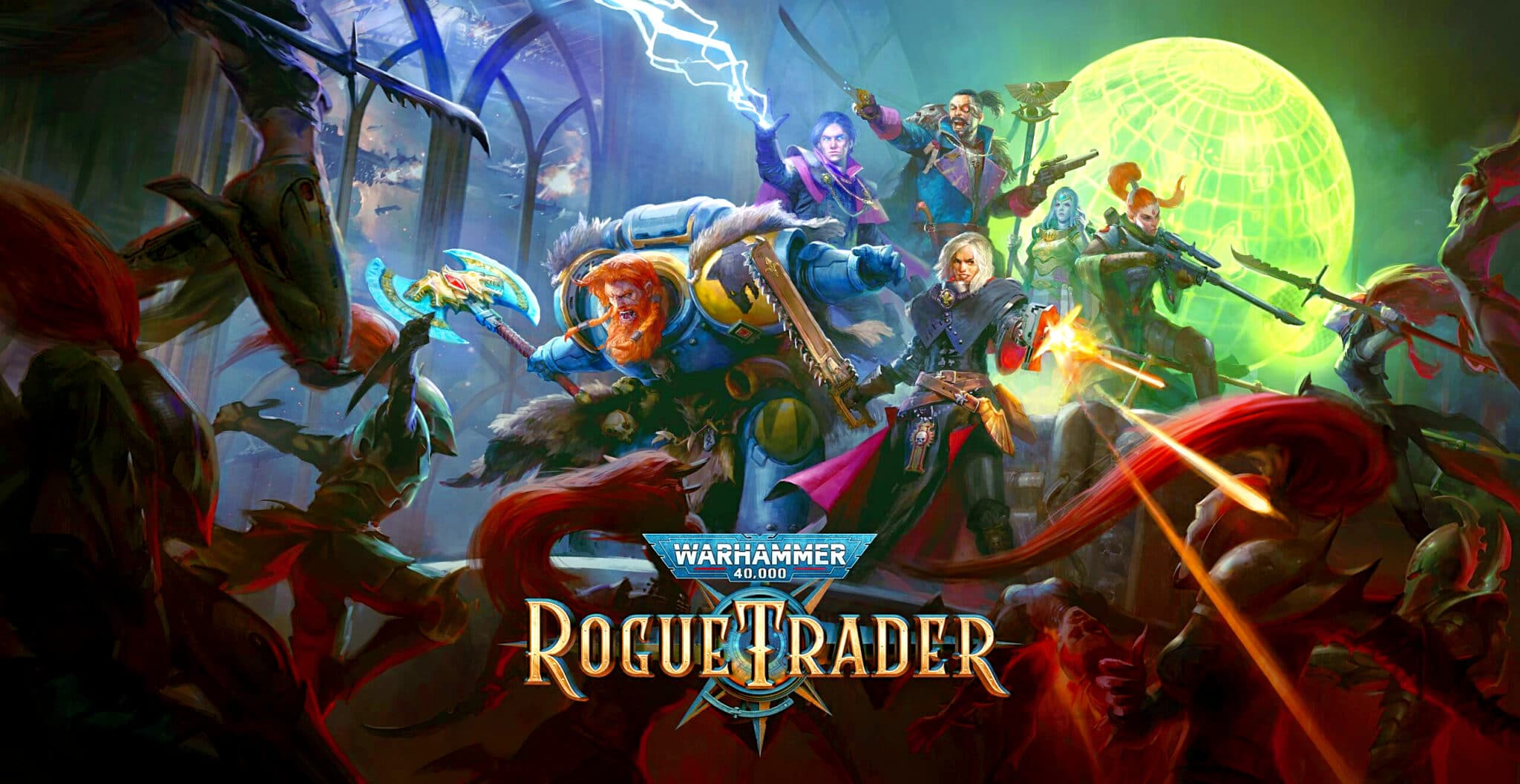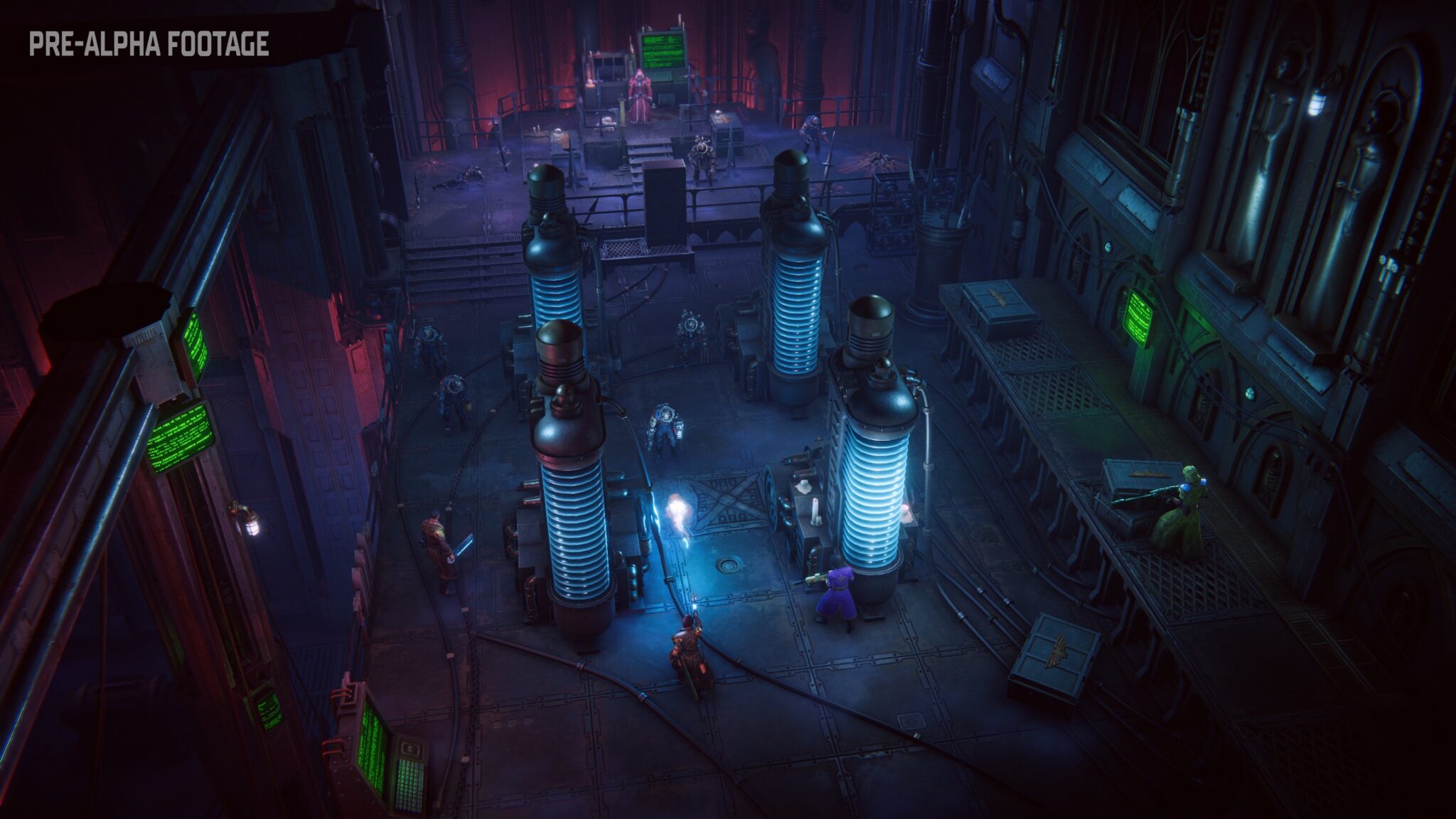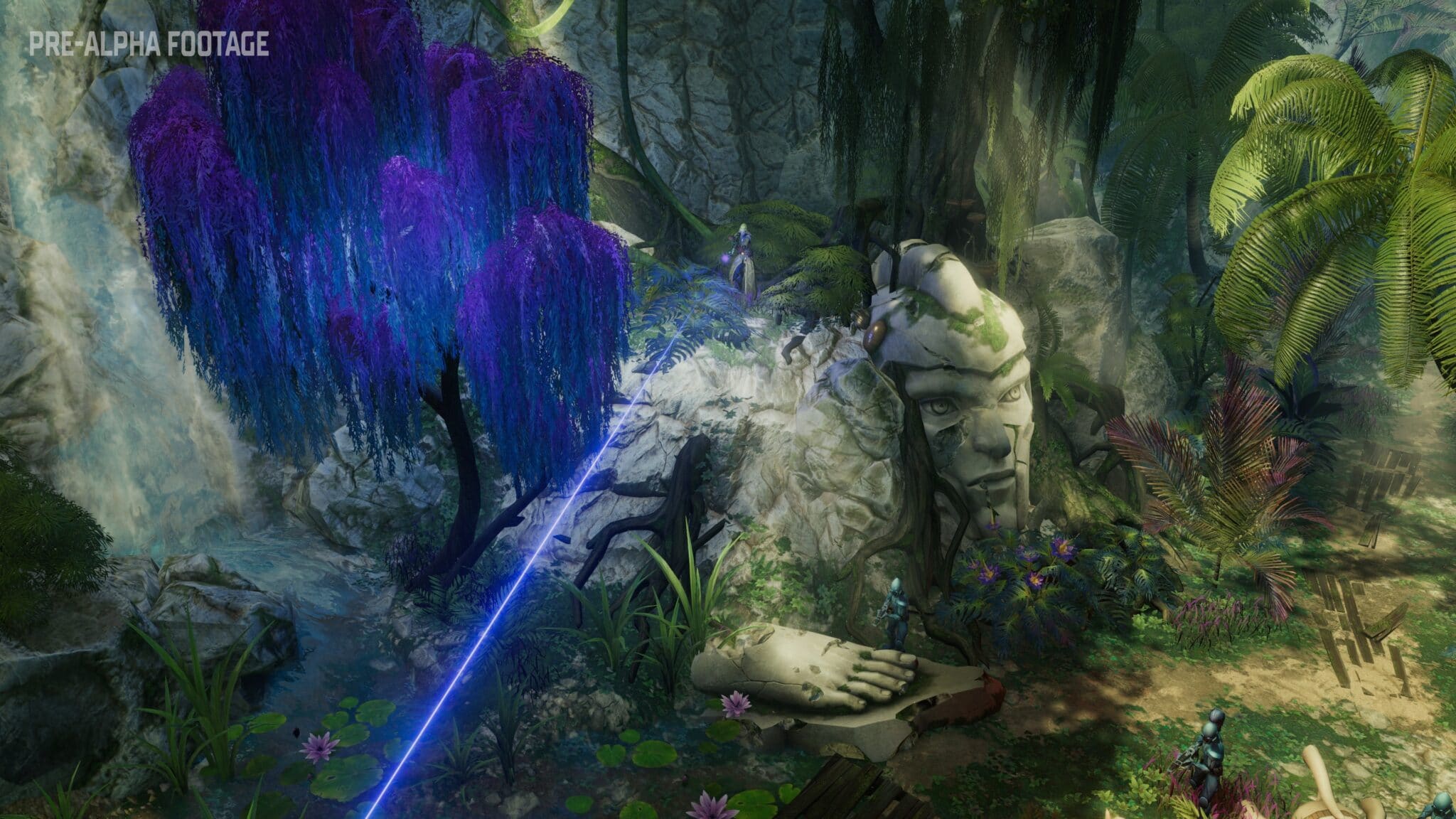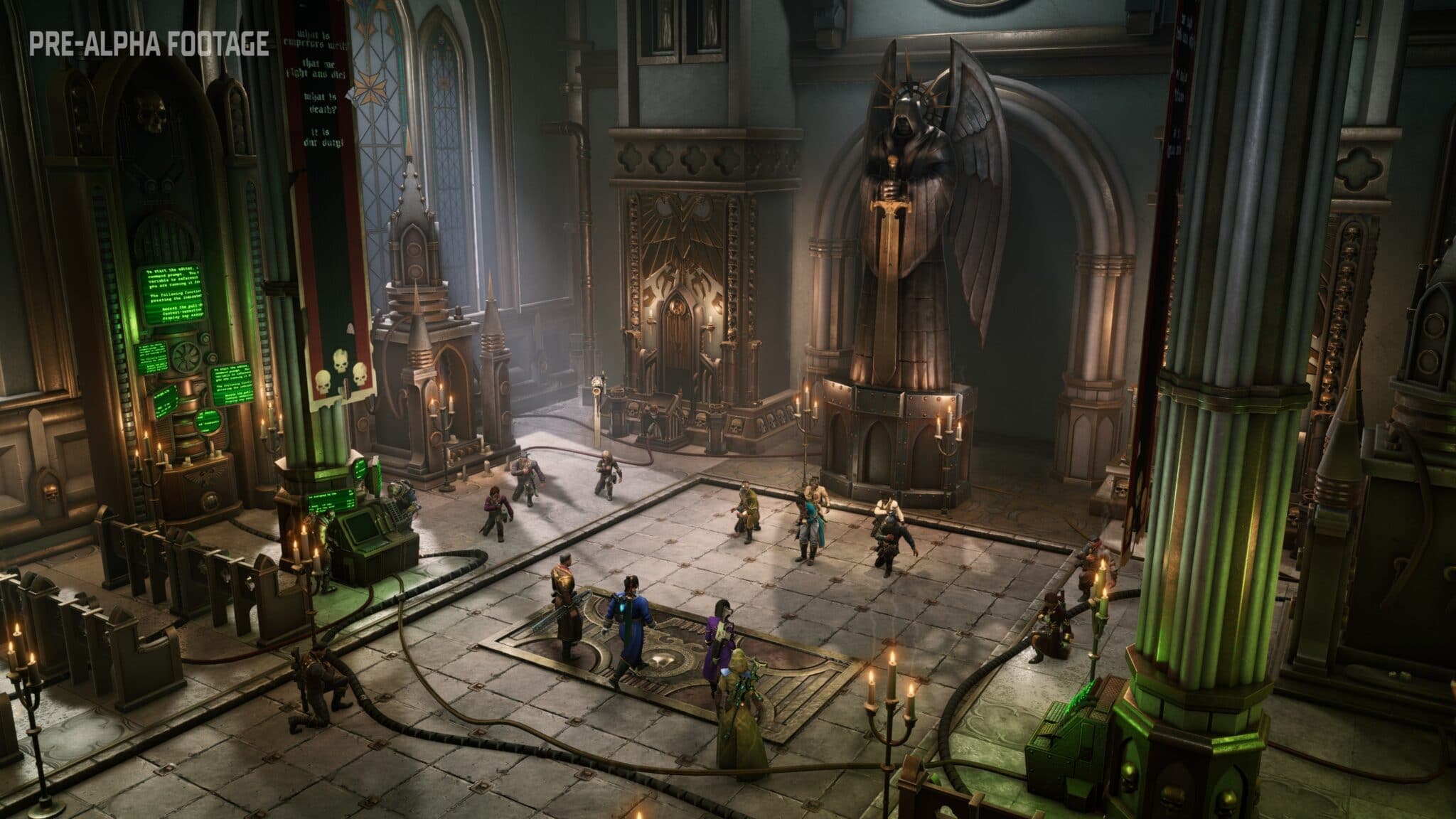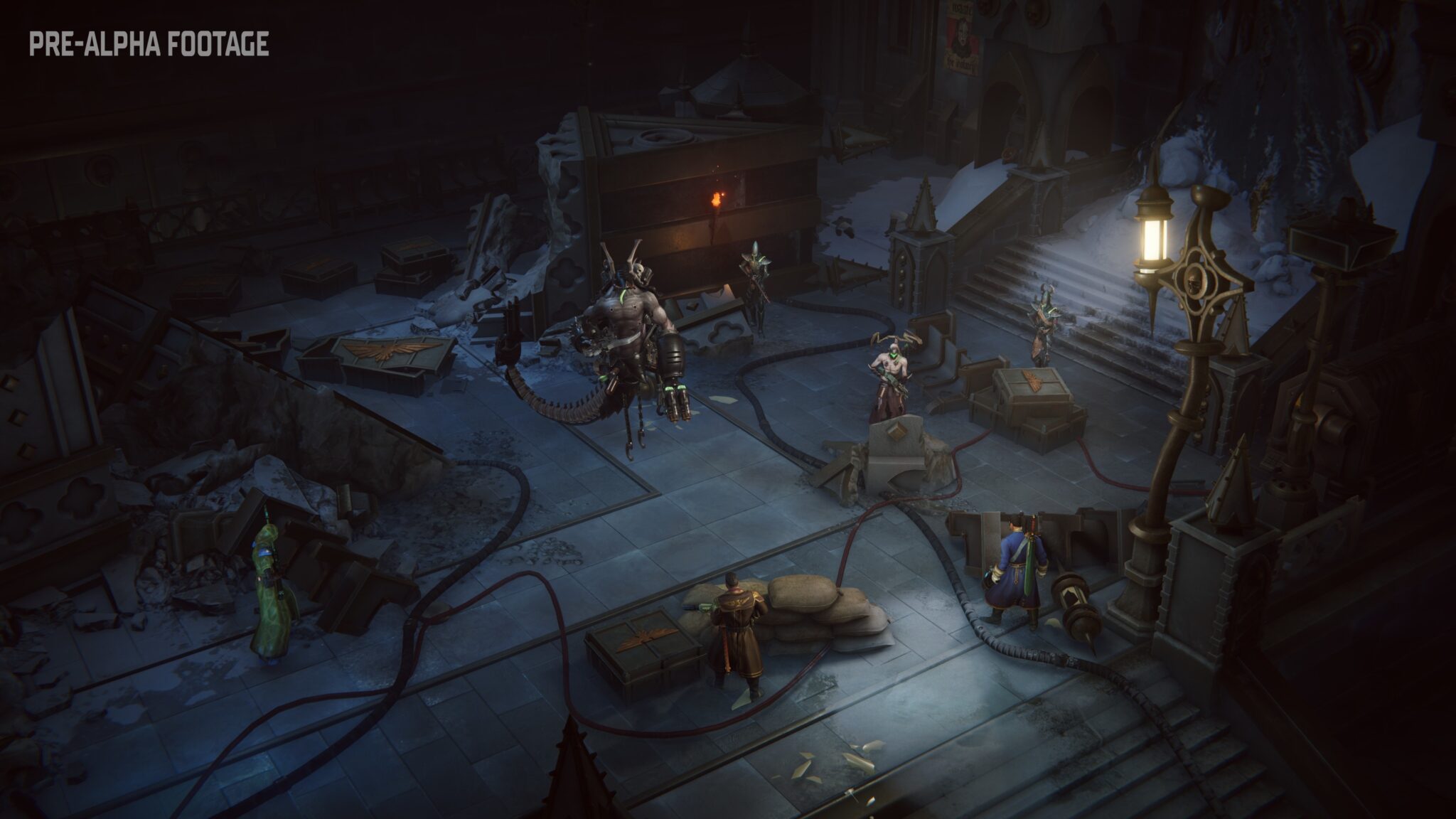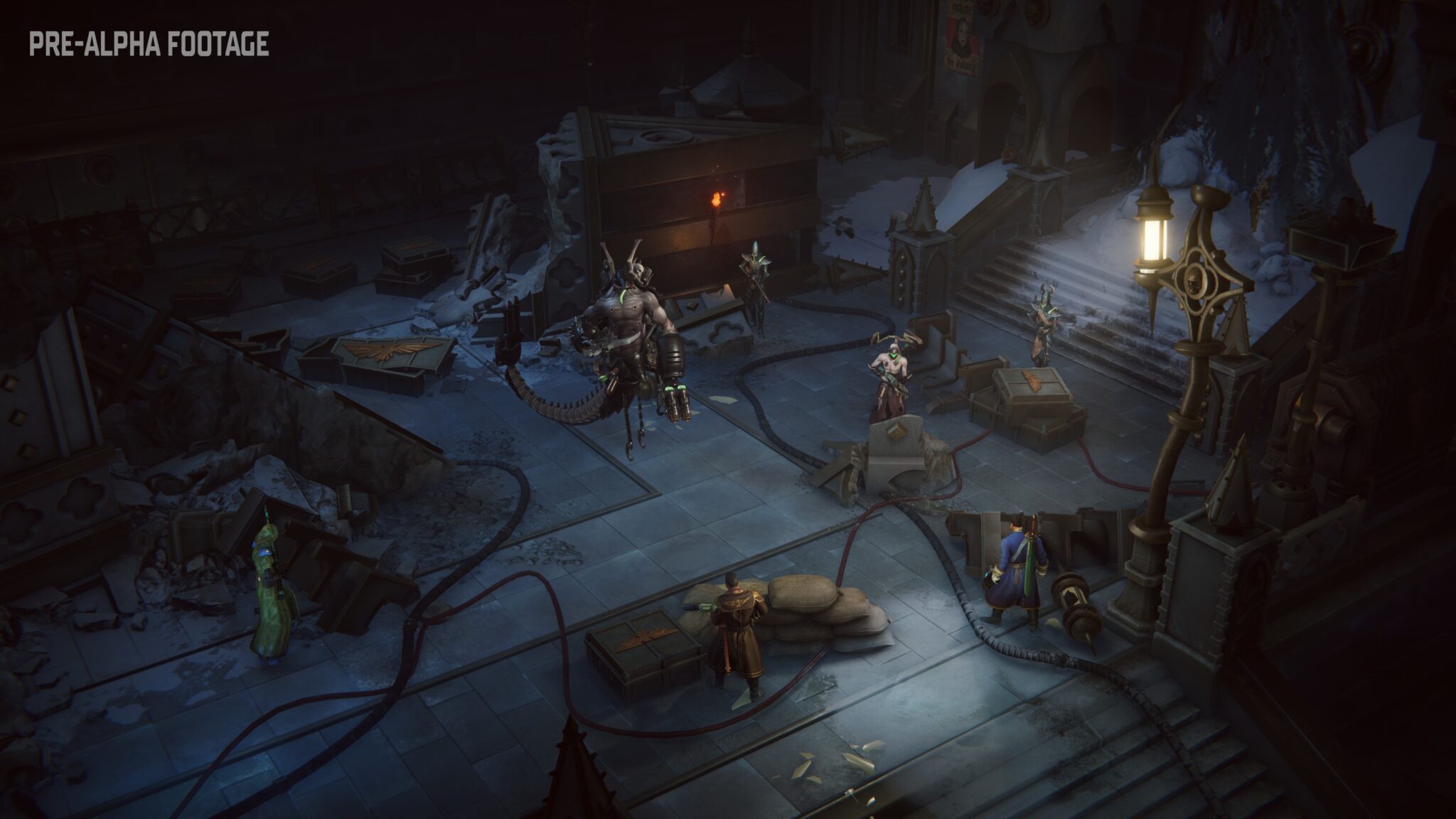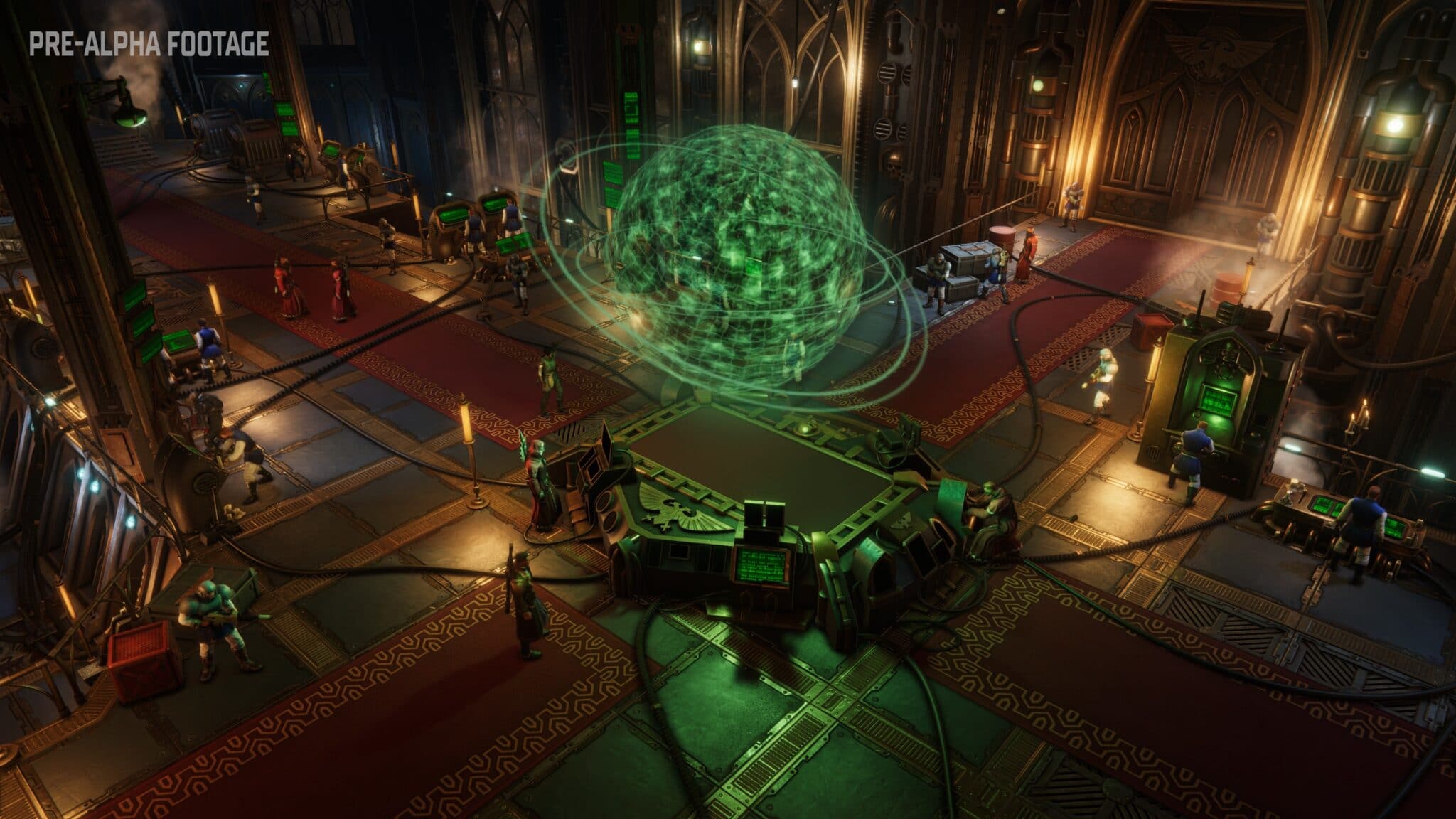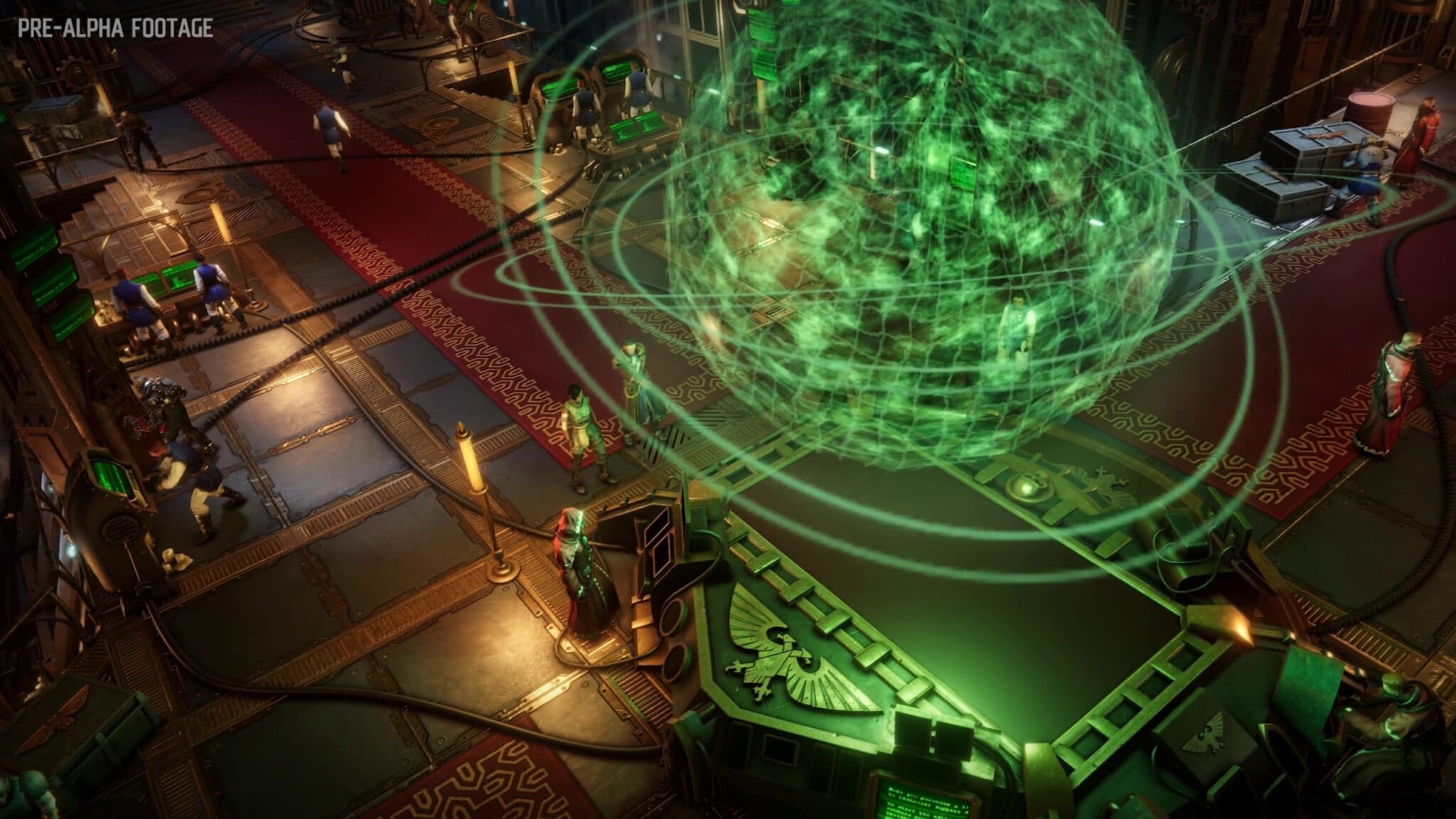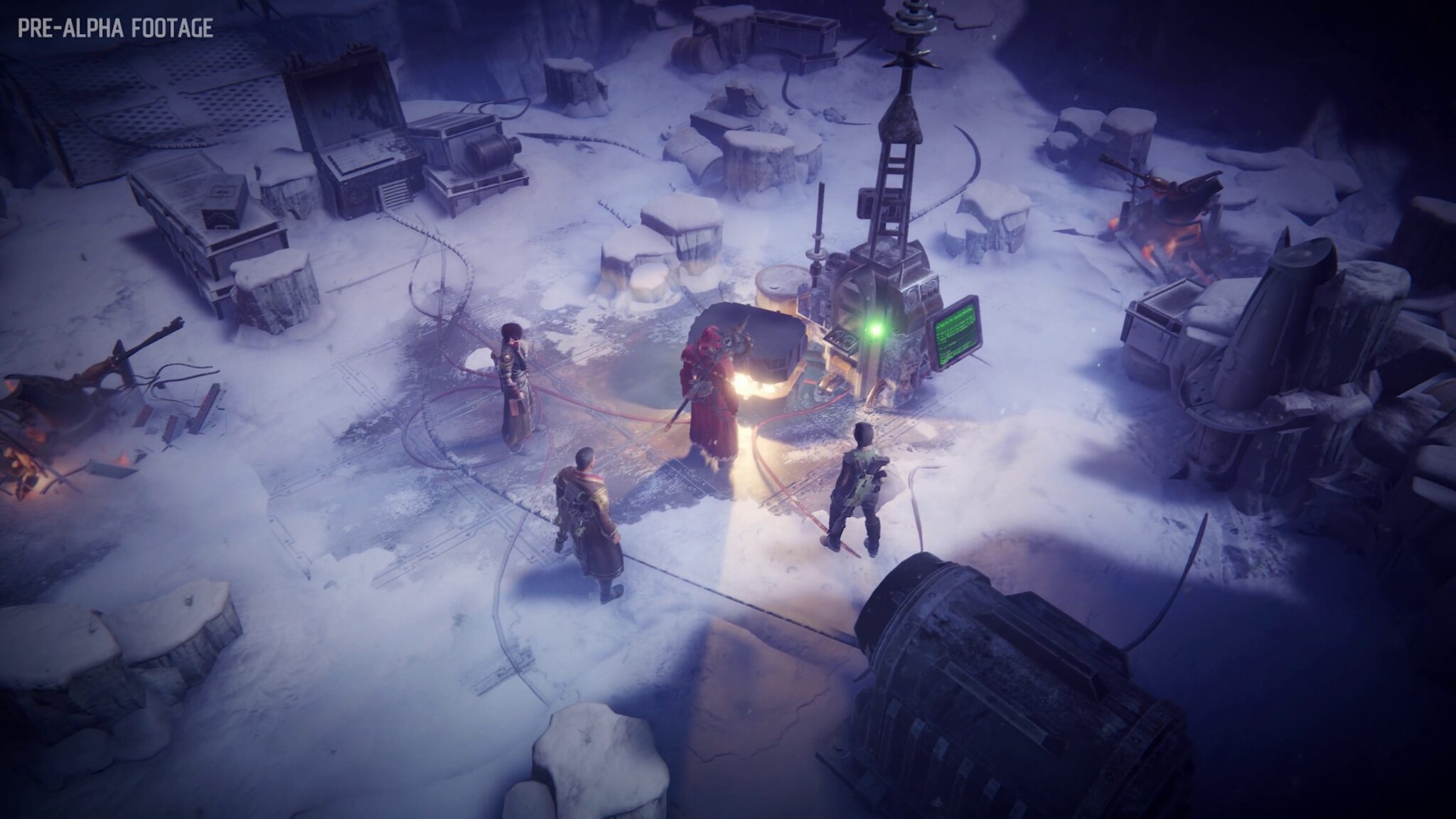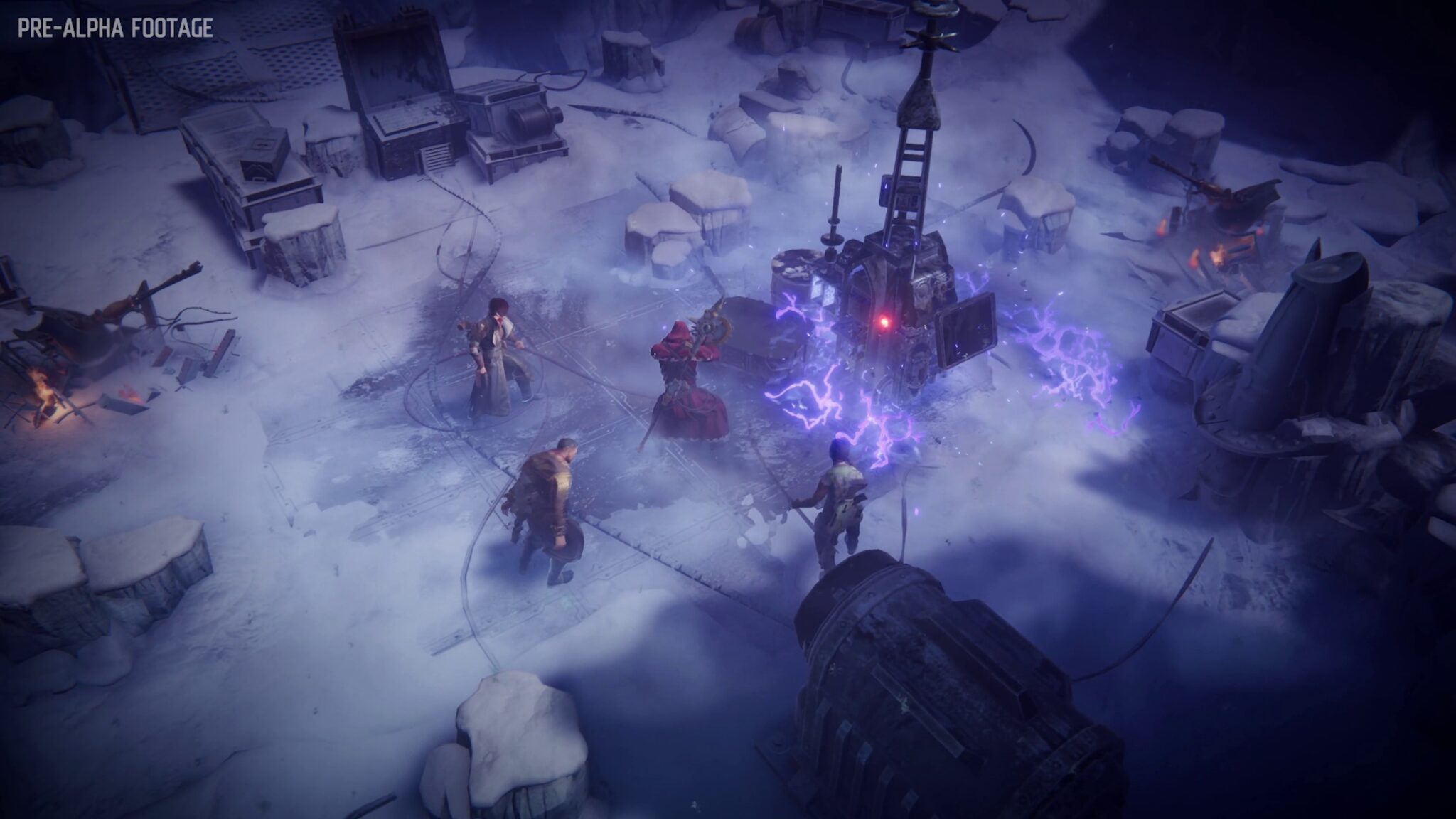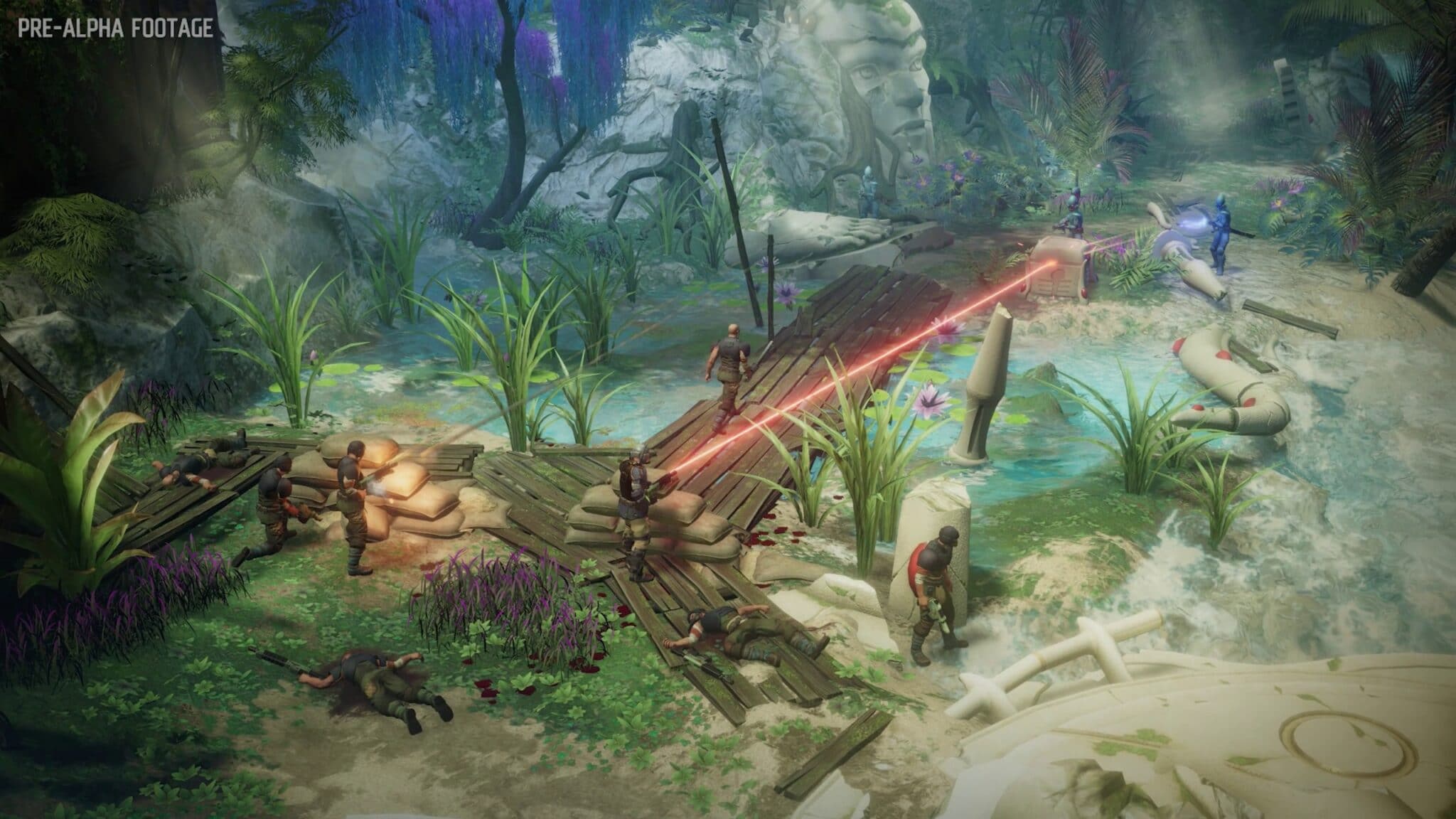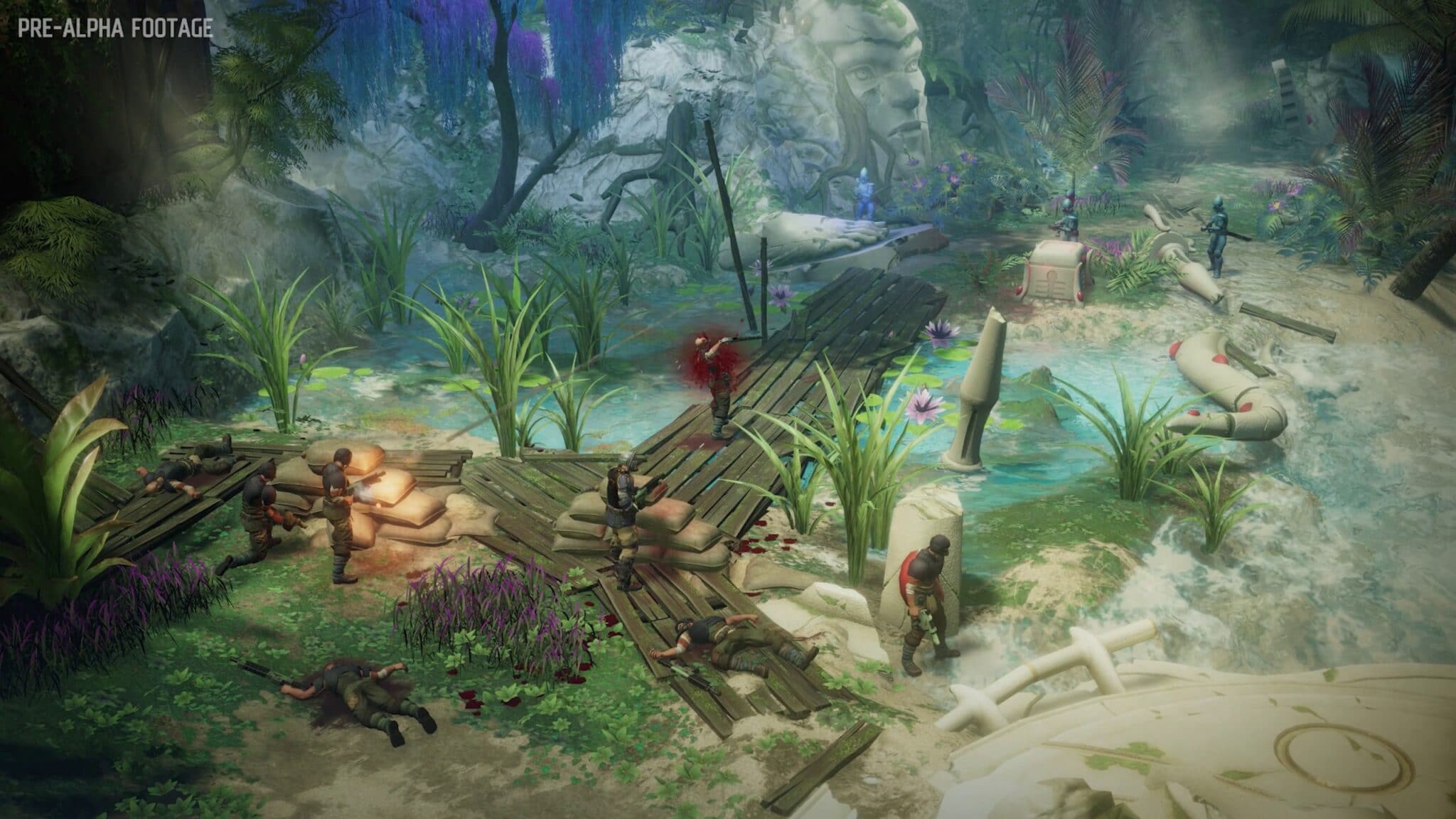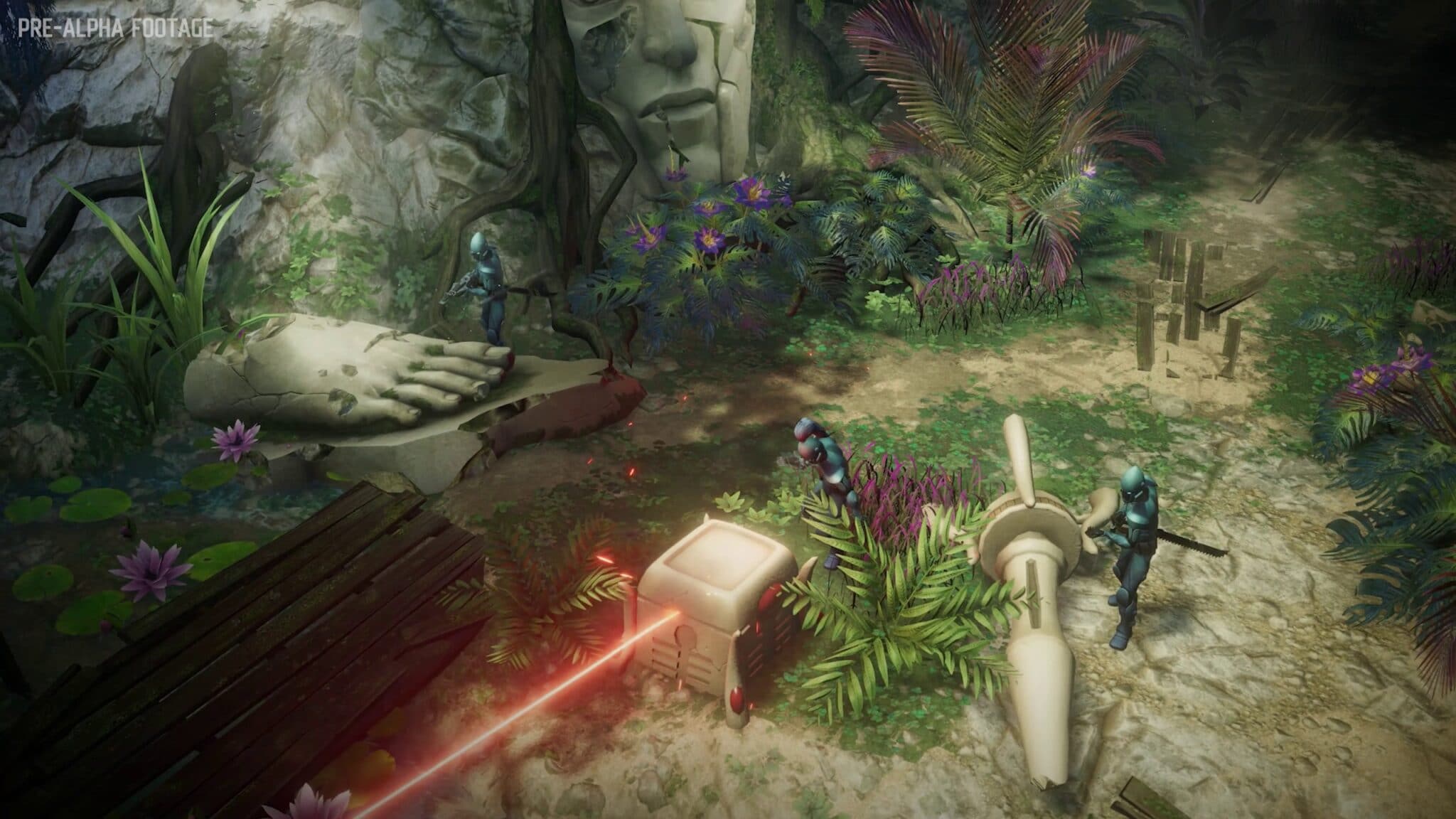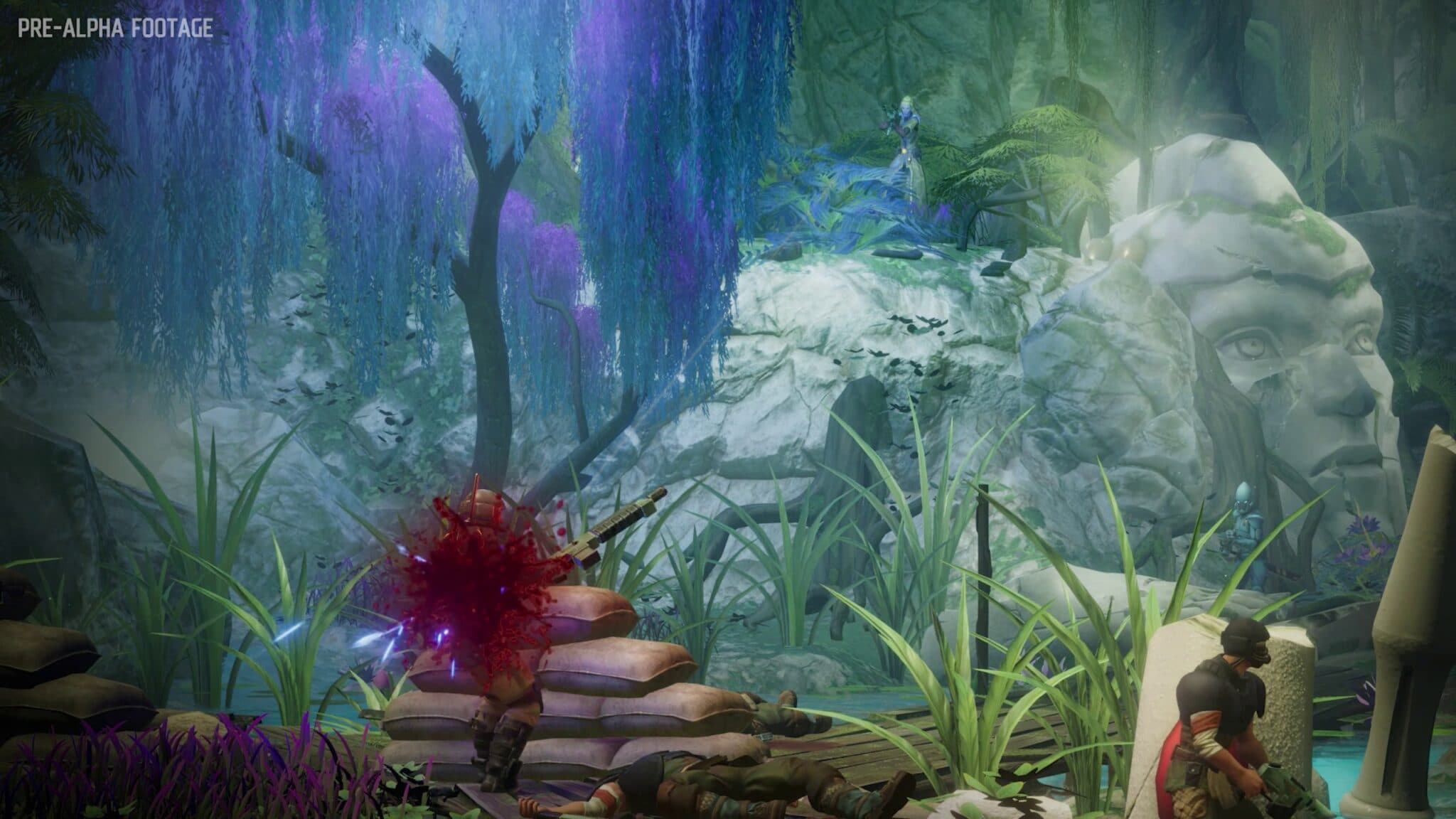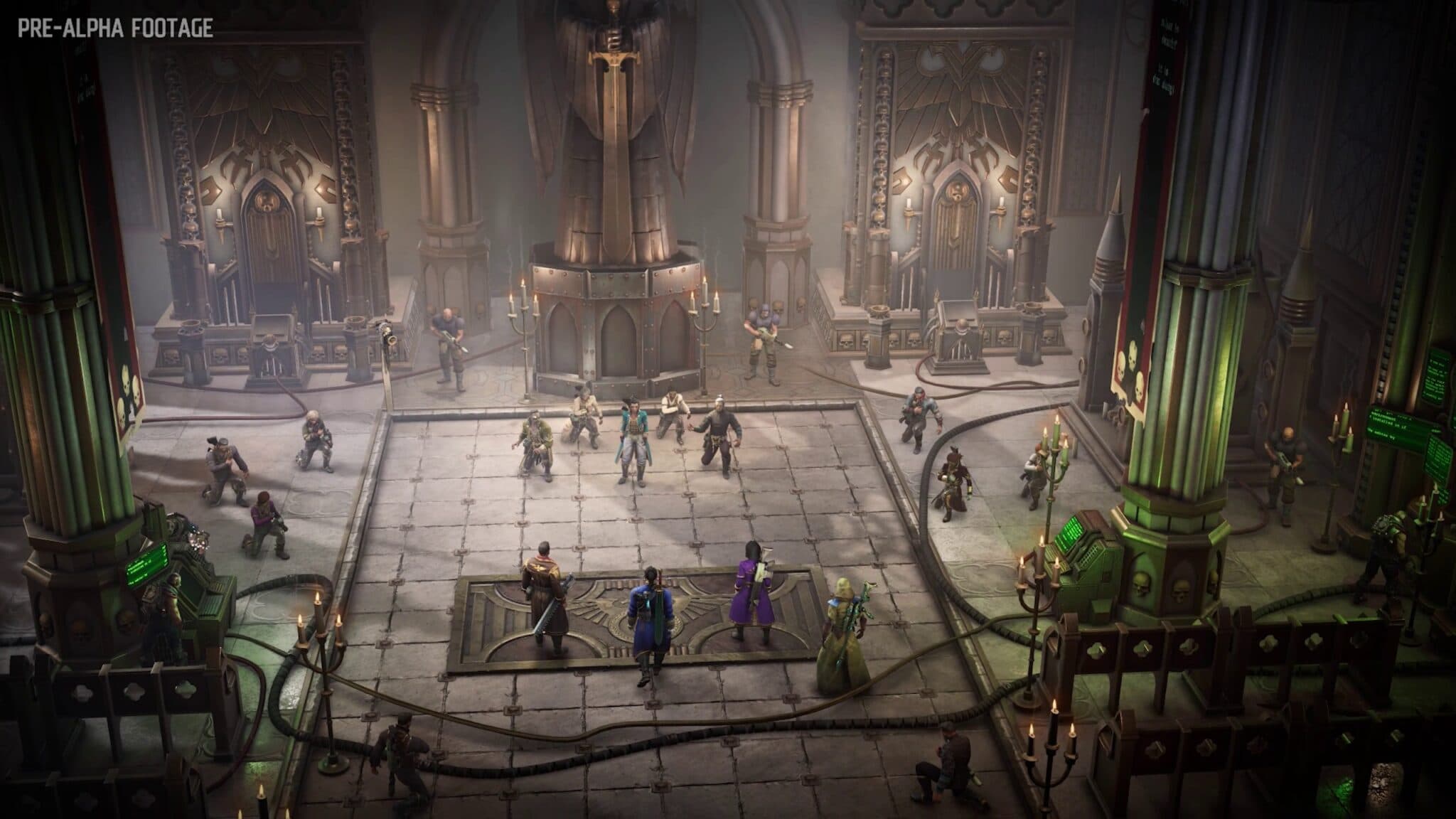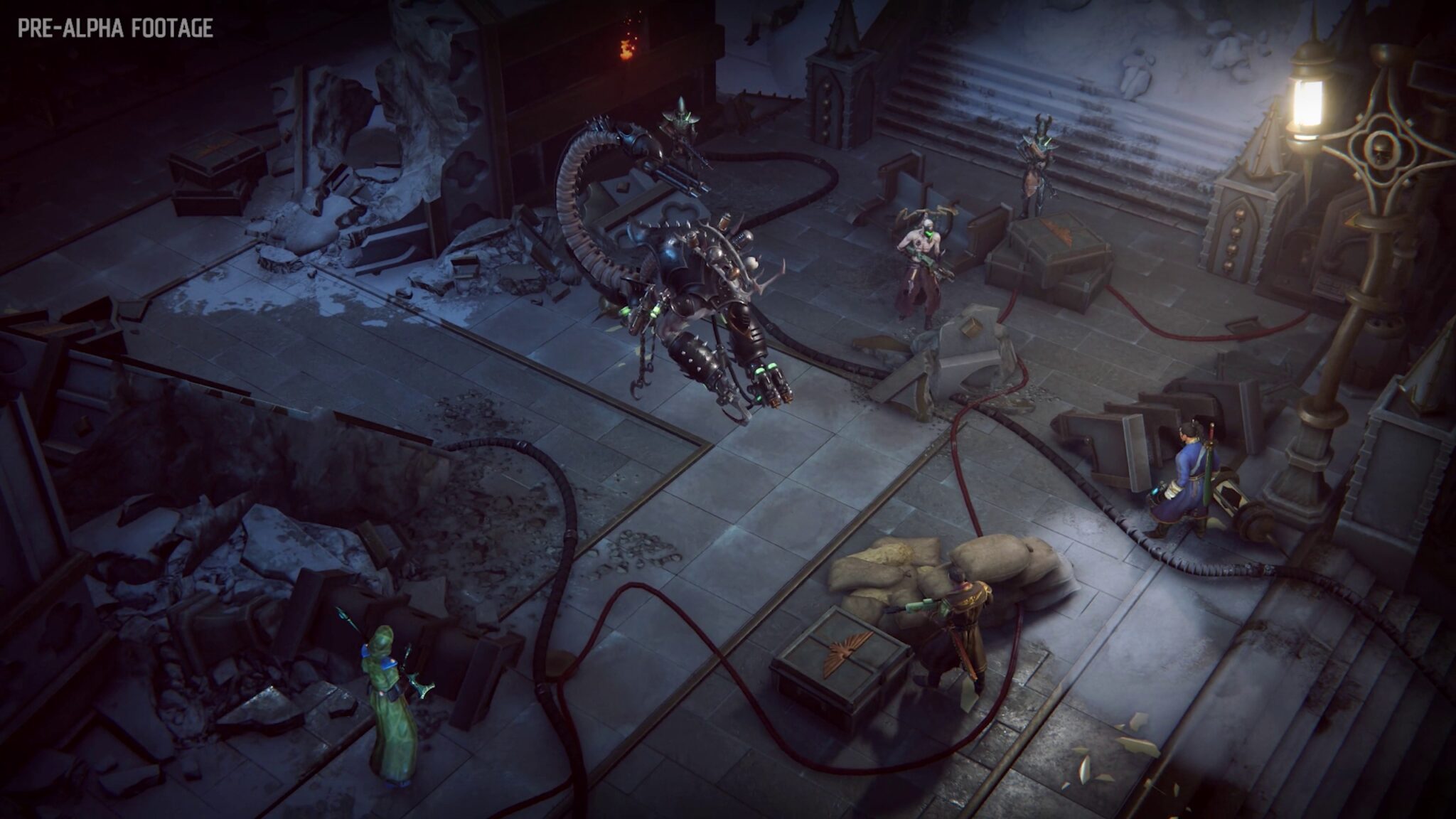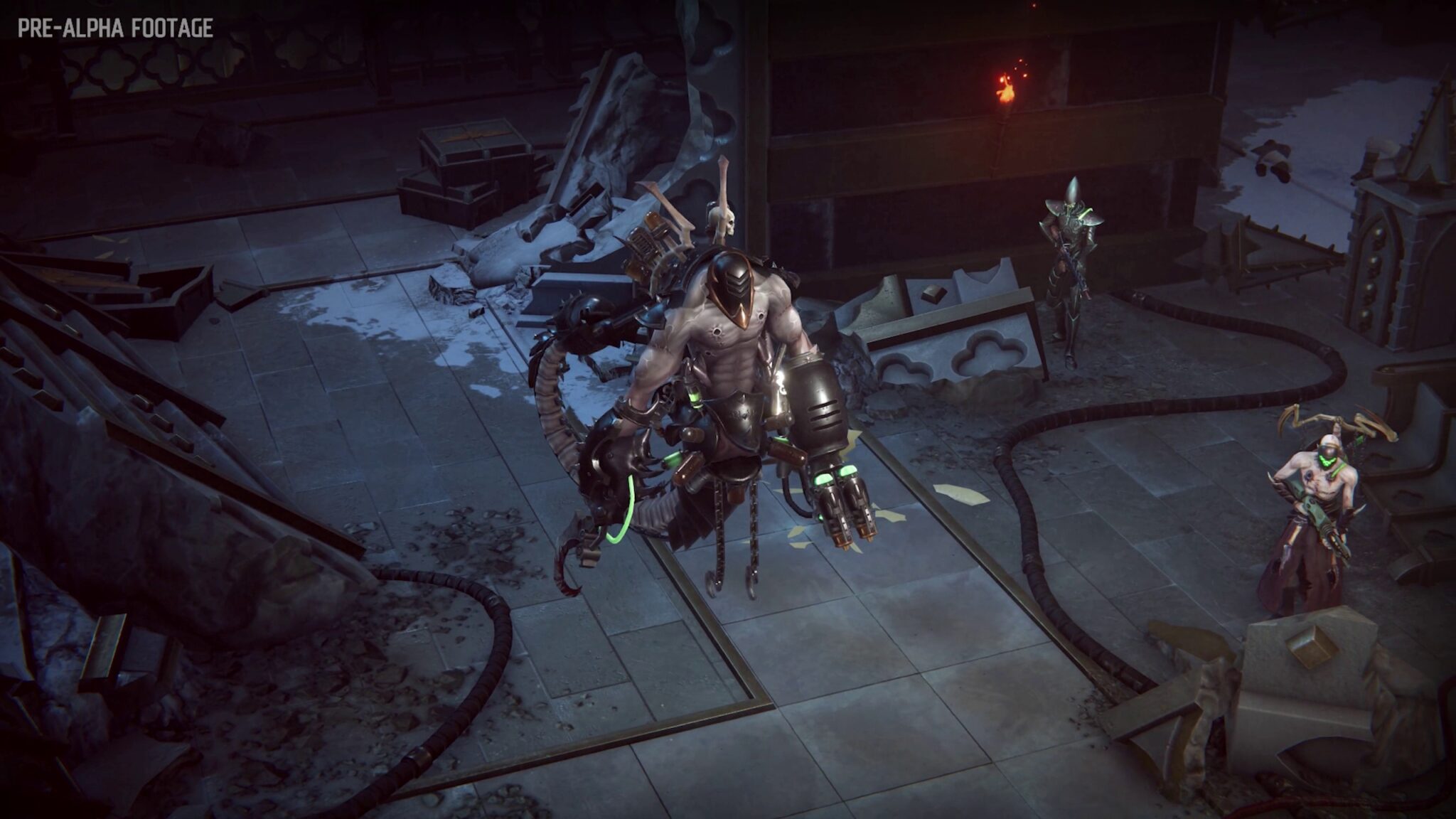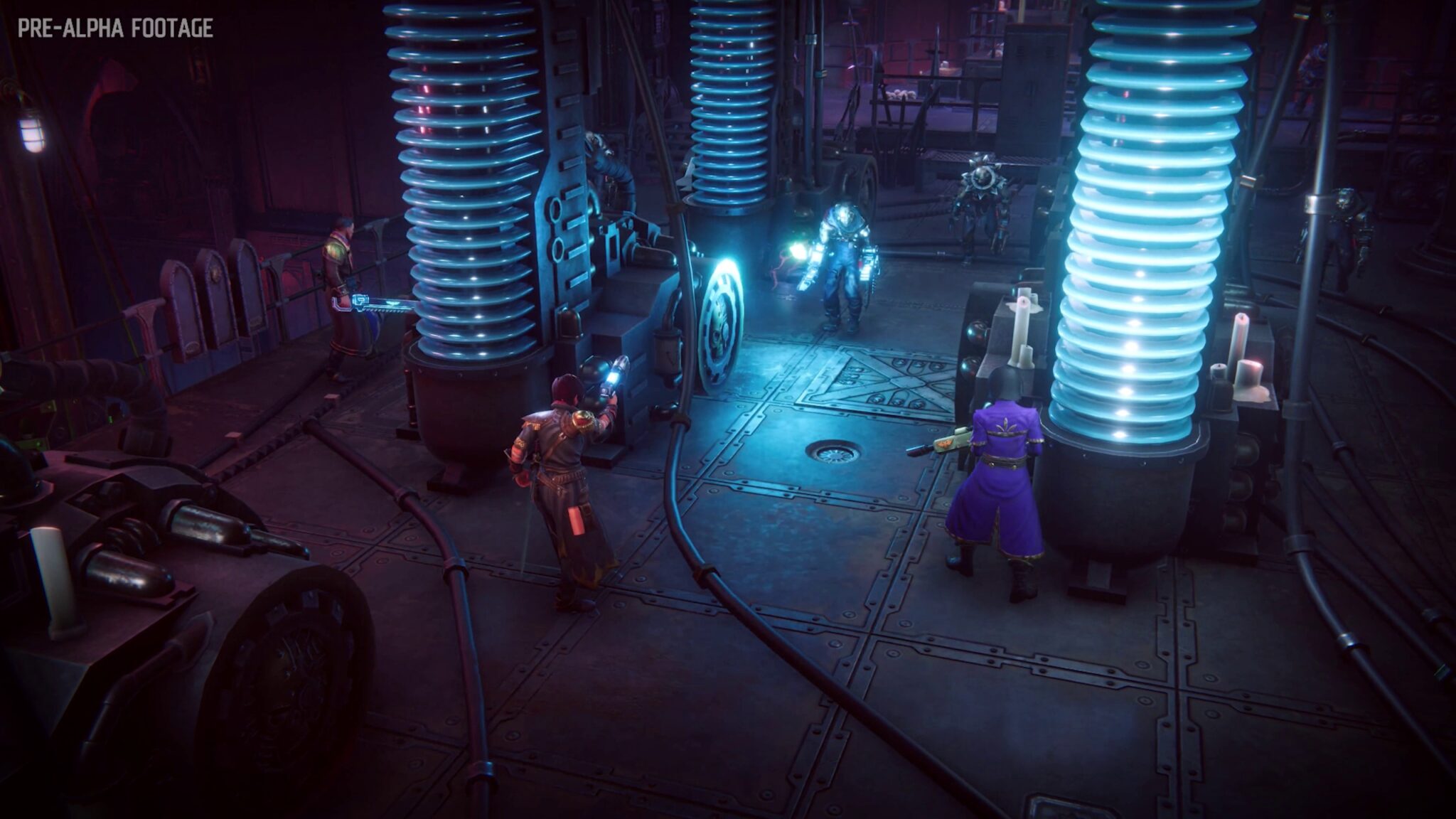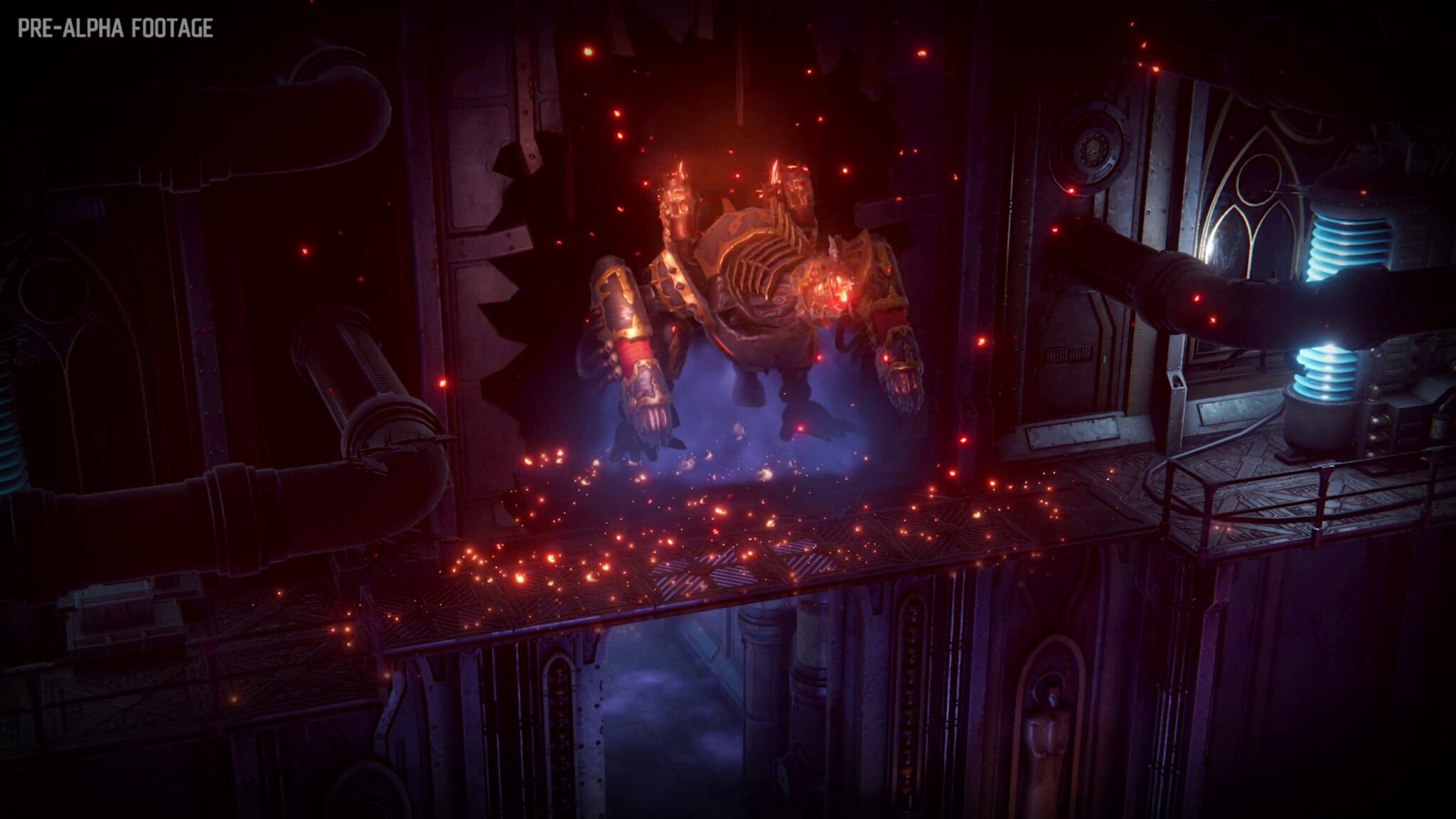The developers of Pathfinder 2 take the leap from fantasy to science fiction. What have they learned that will make Rogue Trader a better RPG?
With the Emperor: This announcement hit like a droppod in an orc pack! Owlcat Games is leaving well-trodden fantasy paths after the terrific Pathfinder: Wrath of the Righteous and is turning to science fiction next. The whole thing was celebrated with a fancy trailer, which, however, did not show any gameplay yet:
Warhammer 40,000: Rogue Trader will be the first role-playing game set in the dark universe of chaos demons, dangerous alien invasions and endless bloodshed. But information about it has been scarce – until now!
Because for the first time, the developers are speaking out in great detail, among other things you can learn more about:The lessons of Pathfinder 2
- The turn-based combat and how it differs from its quasi-predecessor
- The companions in your hero group
- Decisions and Loot System
- The complexity and fidelity of Rogue Trader
- The technology and how Owlcat wants to ensure bug-free
The interview was conducted by ~Daniel~ via email, with Creative Director Alex Gusev available to talk.
At last Warhammer as a role-playing game
(~) : Rogue Trader will be the very first CRPG in the 40k universe. Why do you think it took so long for a studio to get around to it?
Alex Gusev: “If I’m honest, it confuses me too. I really don’t know. We’ve asked ourselves that too, but never found an answer. Maybe there hasn’t been a team that liked the setting as much as we do – even in our team five years ago, not everyone was that excited about the setting. That changed a lot after we started playing Rogue Trader.”
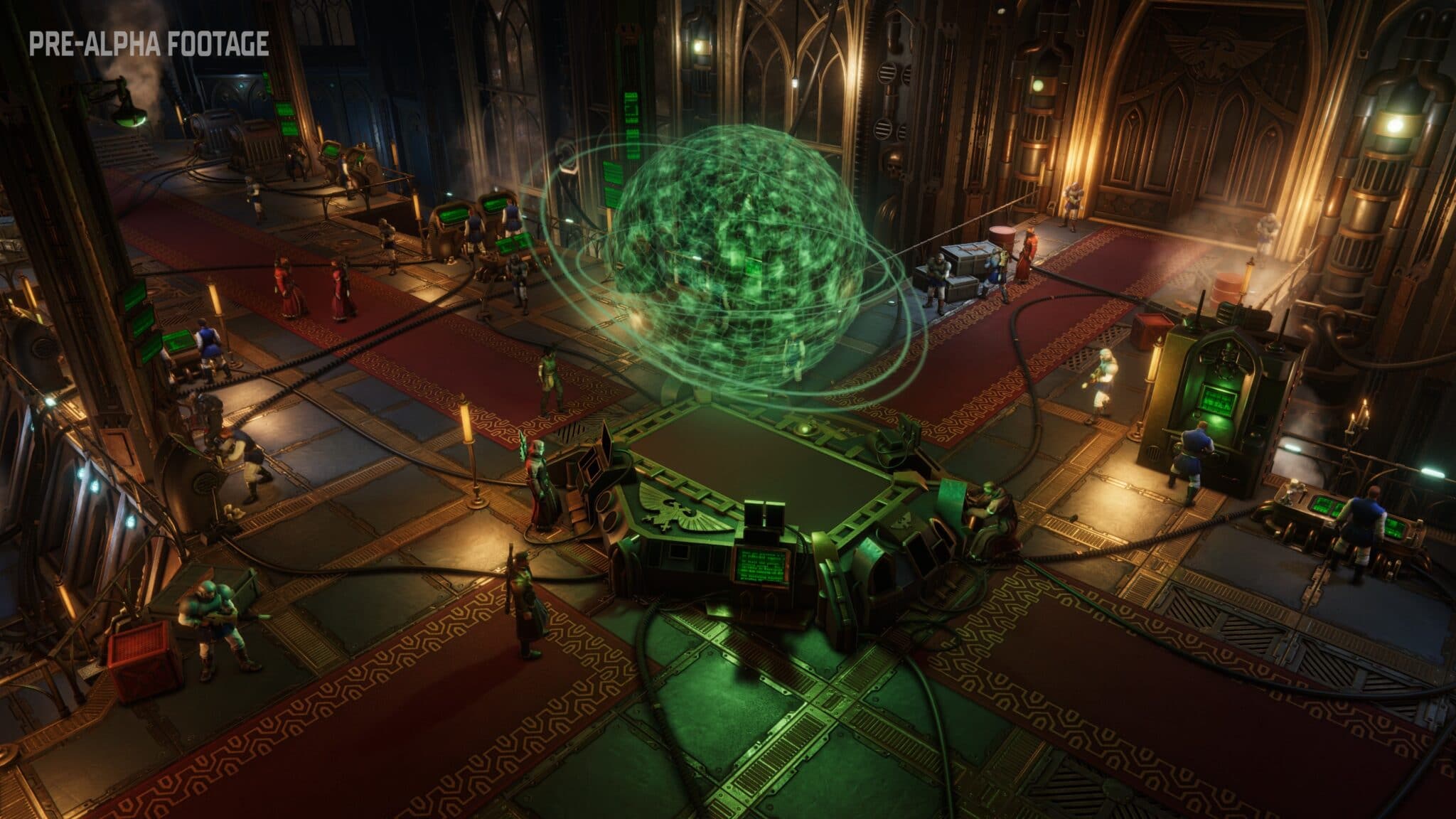
“Maybe other developers saw a risk in this because they didn’t think that the target groups of Warhammer and CRPGs could overlap. It’s only now that the two areas are gradually becoming more mainstream, so it was a good idea for us to tackle it now.
But it doesn’t matter. Many things have not been done yet, a lot more than have been done. It’s not worth thinking too long about it. “
(~) : After you teased that the game would have a science fiction scenario after Pathfinder, everyone was expecting a Starfinder game. Why did you choose Warhammer as the setting for your next computer role-playing game (CRPG)?
Alex Gusev: “There were several reasons why we chose Warhammer 40k. If we had to settle on one right now, we would probably cite our fascination with the setting. A significant part of our team (myself included) are fans of the setting and we’ve had regular Warhammer 40k pen & paper sessions since the studio was founded. Rogue Trader, Dark Heresy, Deathwatch, Only War and Black Crusade – we’ve played them all.
Every time we’ve played these systems, we’ve wondered why there isn’t a CRPG in the Warhammer 40k setting yet. One of the most valuable aspects of a CRPG, at least to me, is the freedom of the player to explore the setting. And for that to work, there needs to be lots of things worth exploring – and there are more than enough of those in Warhammer 40k.
And then, at some point, we came to the point where we stopped wondering why there wasn’t a CRPG about it and agreed to be the first to fill this obvious gap in the market ourselves. Then we pitched our idea to Games Workshop … and here we are. “
(~) : How will the experience you gained with Pathfinder help you with the Warhammer 40k setting? What are the similarities and what are the major differences?
Alex Gusev: “True, many of us worked together before we started Owlcat Games. But Kingmaker and Wrath of the Righteous were the first games we developed together as a studio. And for the foreseeable future, the experience we’ve had with them will also inform many of our decisions. We’ve learned which maps, quests or companions players like better and which ones they don’t.
The biggest difference with Pathfinder is that we want to lower the barrier to entry for new players while maintaining depth for hardcore players. Pathfinder was a fairly complex CRPG for newcomers, especially those who have never played a D&D game before (whether as pen & paper or as a video game). Players had to learn many different terms right at the beginning – and then even more for the next hundred hours. But we now want the first steps in our game to be an enjoyable experience.”
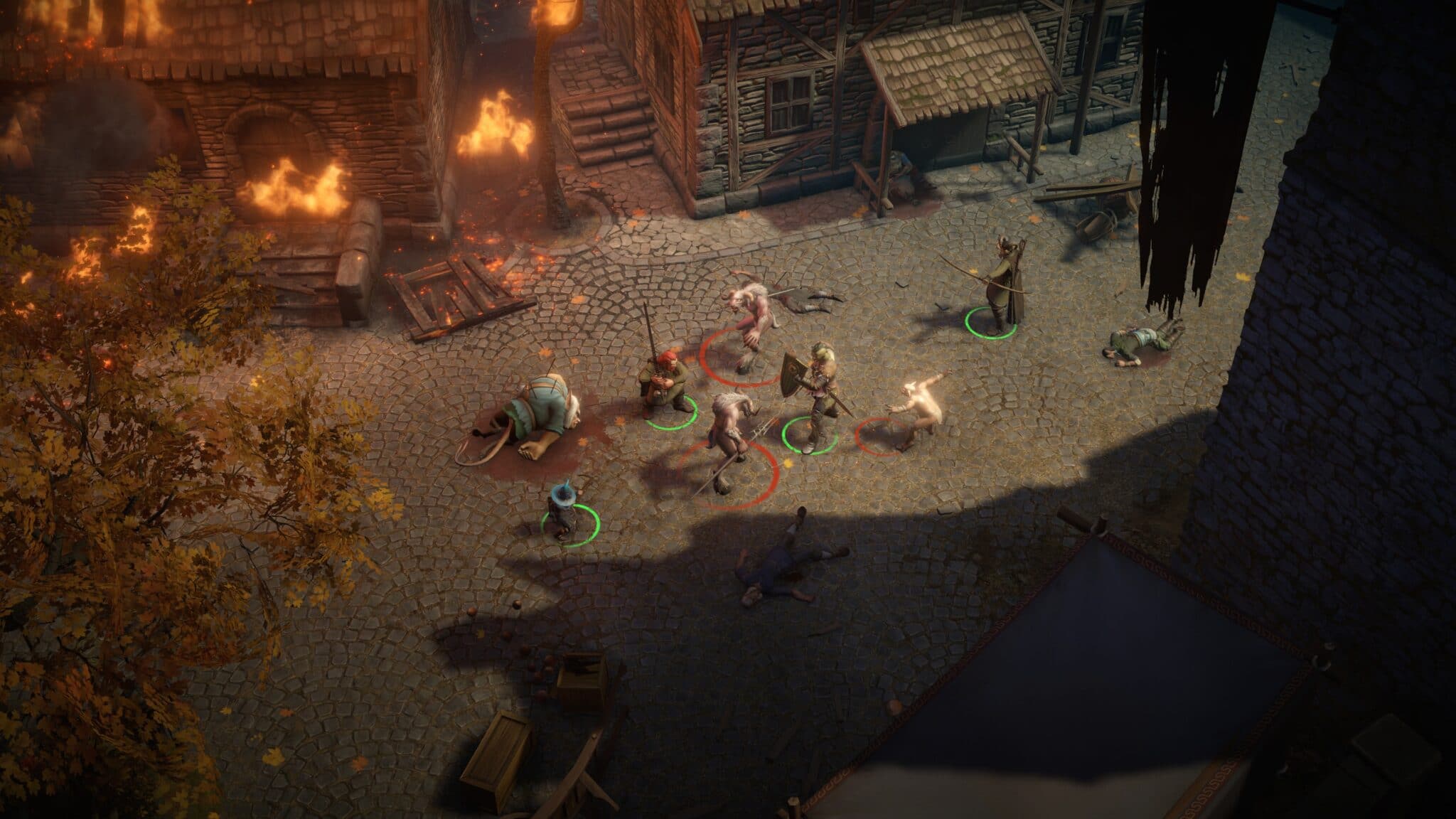
“Another difference is the focus on turn-based combat – that means we have to include less combat encounters (because they take up more time) – because if you have too many of them in a turn-based game, you start to hate the game. This means that we have fewer battles, but pay more attention to each battle – and quality always needs more work than quantity. To keep the balance between activities, dialogue should follow combat much more often than it did in Pathfinder. “
(~) : What is the biggest difference when it comes to representing the Pathfinder and 40k universes? Or rather, how will you make sure you hit the right note?
Alex Gusev: “The biggest difference isn’t even the tone of the universe. Some parts of Pathfinder, especially Wrath of the Righteous, were dark and murky. Rogue Trader, on the other hand, is without a doubt one of the most ‘adventurous’ parts of 40k, with swashbuckling heroes, and it’s less sinister than other parts of the setting – though our game will have dark and scary moments too.
The main difference from my point of view is the polarisation. In Pathfinder, many factions often work together against a common enemy – this happens much less often in Warhammer 40,000. Factions hate each other and are in a perpetual war.
Also the alignment is completely different. In the Imperium, freedom of speech is much less tolerated and many things that work well in other settings would result in terrible consequences. In the Warhammer 40,000 setting, hatred is a virtue, while forgiveness is a sin. “
(~) : For the Pathfinder games, you used Kickstarter as a crowdfunding platform and then went into Early Access. (This time you are using your own platform). What were the reasons for this and what are the biggest differences to the previous Early Access programmes?
Alex Gusev: “We used Kickstarter for the previous games because we needed additional funds – we don’t need that now. Please don’t get me wrong, additional financial support is always welcome, but our game will be finished now, regardless of the amount we will raise through our platform.
One of our biggest goals at the current stage of development is to collect player feedback. We can’t imagine the development process without our community, who have played a huge role in Pathfinder. We’ve looked at different ways players could be involved in the development process and give us feedback and suggestions. We really believe that this helps us to make a better game. Founder’s Packs seemed like a good option that would meet all our needs. “
The end of real time
(~) : What was the main reason you decided to go with a turn-based mode for Rogue Trader rather than pausable real-time?
Alex Gusev: “One of the reasons we decided to go with pausable real-time for Pathfinder was because of our role models – classics like Baldur’s Gate, Icewind Dale and Neverwinter Nights. But currently our focus has changed, we want to focus more on combat and the decisions in it. We also think that turn-based combat will focus more on specific characters and enemies, which will allow us to showcase their differences better and give them more spotlight.
Also, as mentioned earlier, our goal for this game is to lower the barriers to entry without sacrificing role-playing depth. And we believe that a turn-based mode simply lends itself better to this because players are faced with fewer events at the same time. “
(~) : In Pathfinder, I only used turn-based mode for boss fights because I personally found it too slow for normal trash mobs. How will you ensure that the turn-based battles in Rogue Trader remain exciting throughout the game?
Alex Gusev: “Because turn-based battles take significantly more time compared to real-time with pause, we want to include fewer encounters while putting more development time into each battle to make them more exciting, unique and fun.
We also want to incorporate different ways to speed up turn-based combat. Currently, for example, we are planning to include different initiatives for the characters (as was the case in Pathfinder). Some enemies will act as a group – at the same time, in the same ‘initiative slot’, while the encounters themselves will be deadlier and faster than in most turn-based games, simply due to the destructive nature of 41st Millennium weapons. “
Of rules and innovations
(~) : Pathfinder was a faithful adaptation of the Pathfinder rules. Can we expect the same from Rogue Trader and is the WH40k system easy or harder to implement in a PC game
Alex Gusev: “One of our goals was to stay as close as possible to the rules of the Pathfinder pen-and-paper template. For Rogue Trader, however, we don’t have that goal. Currently, we take inspiration from the tabletop rules for both Warhammer 40k and the pen & paper Rogue Trader rules. But we don’t plan to transfer them completely for a CRPG like we did for Pathfinder.
We like those systems – but we also believe that immersive turn-based combat in a video game needs more features than that. People who have played these systems will find a lot of things that look familiar, such as the weapons and skills, the names of mechanics and stats – and they’ll find that a lot of it works similarly, too. But they’ll also encounter a lot of our additions, especially things you can do in combat.”
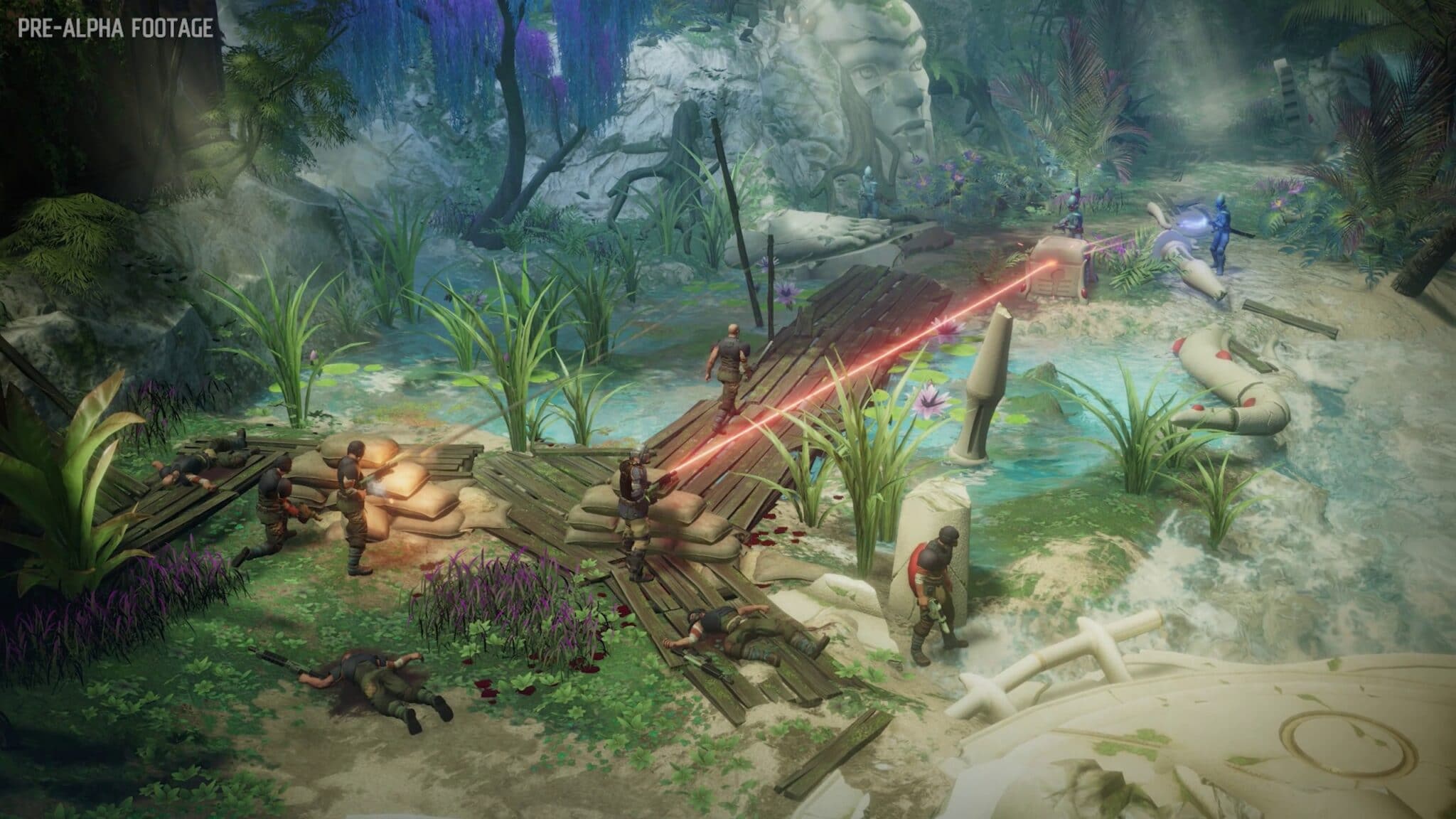
(~) : For the Pathfinder DLCs, you’ve experimented a bit with gameplay variations, such as environment integration. Can we expect something like that in Rogue Trader?
Alex Gusev: “As I mentioned before – our goal is to make the battles more unique and we are trying out a lot of possibilities right now. But we don’t plan to introduce them all into the fights, because in a game like ours that will quickly wear out. Also, Rogue Trader is a very heroic CRPG, so in a game like this you expect your character to be the focus of the fights and not the environments, which would be more fitting for a survival setting. I also feel that if you’re going to waste a lot of time earning an epic bolter gun, you want to use it to take out enemies, not shoot red barrels.”
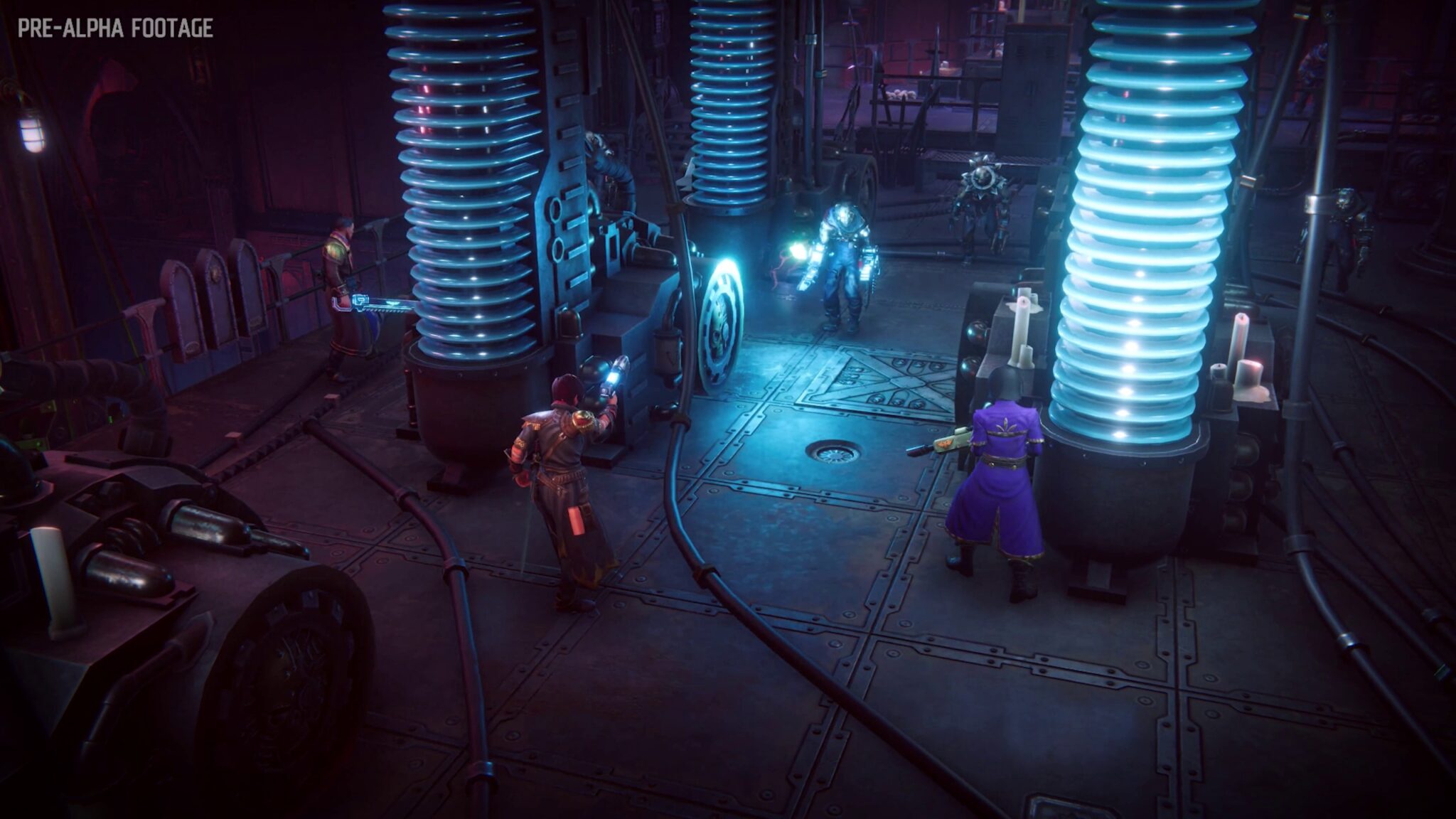
(~) : Both Pathfinder games had strategic gameplay elements. Will we see something similar in Rogue Trader?
Alex Gusev: “Rogue Trader can capture new planets and reclaim lost ones for the Empire of Mankind. These planets form the basis of the rogue traders’ power and wealth. We are therefore working on systems that give players the feeling that they really are rulers of worlds. More details will be announced at a later date. “
(~) : How will the exploration of the world work? Will it be similar to Pathfinder where we have a world map and smaller dungeon maps for each locality? Or do you want to try something completely different this time?
Alex Gusev: “Travelling through the Koronus Expanse – the part of the galaxy where Rogue Trader will take place – will look similar to Pathfinder, with some exceptions. These exceptions include warp travel, but it works differently than in other sci-fi universes because the spaceship has to go through hell to travel from one star system to the next. Many things can happen during warp – and most of them are not good.
Rogue Trader is also a game about exploring stars. So there will be another layer between the global map and the local maps – the star systems. Players will be able to explore these as well, and interesting events and rewards await.”
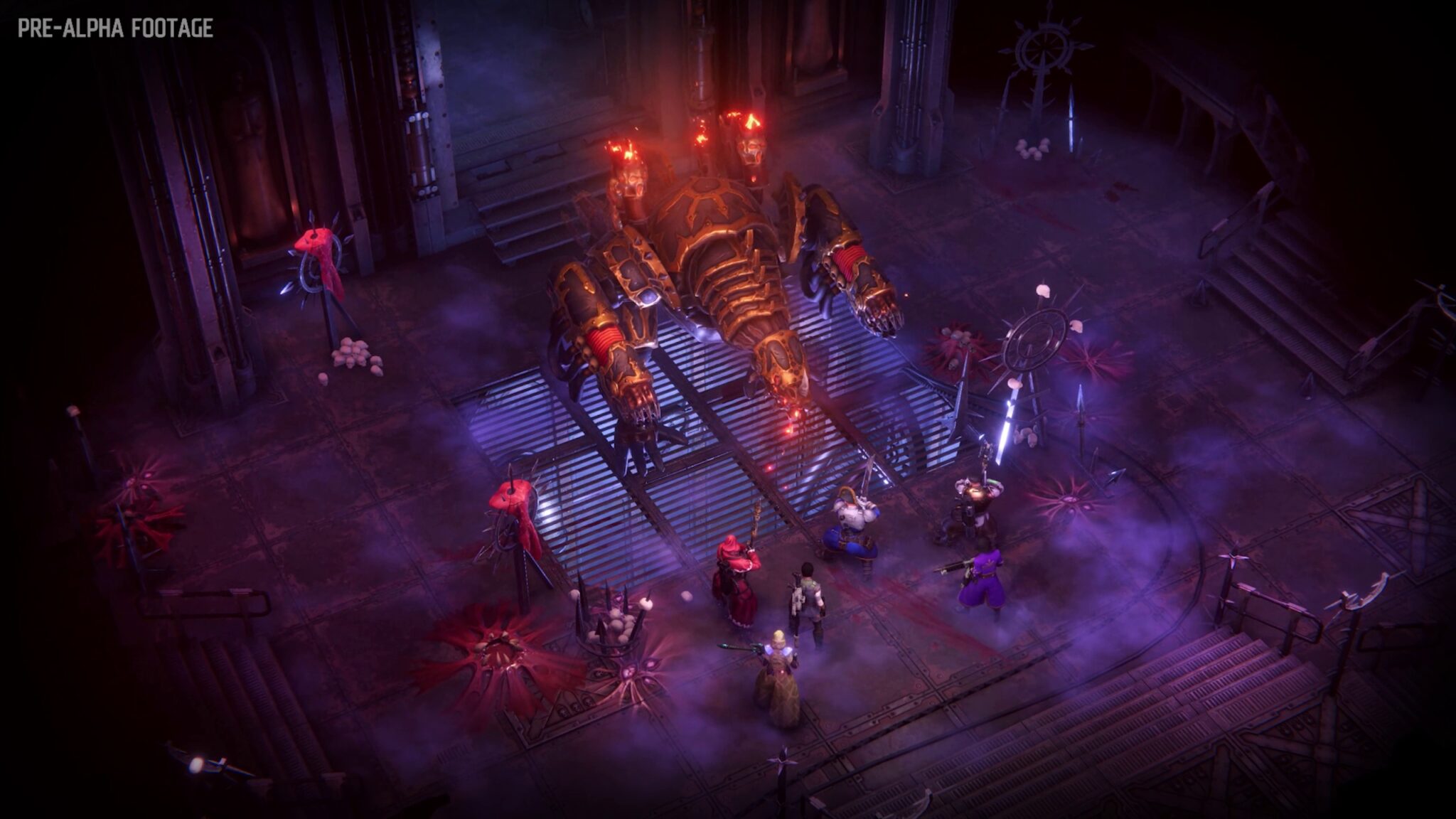
The technology
(~) : As much as I love the Pathfinder games, both had to deal with a lot of technical problems at release. How do you want to make sure it goes better this time?
Alex Gusev: “We now have more experience in the development of games. And we take additional precautions to ensure a high quality of the product at release. We will take more time to stabilize all versions before their release – including the beta versions. We also test the game much more internally. “
(~) : What are the biggest technical challenges with the Unity Engine when moving from a fantasy setting like pathfinder to a sci-fi setting like Warhammer?
Alex Gusev: “The Unity Engine is quite diverse, so many of the technical challenges come more from our own infrastructural decisions and desired system requirements. We know that new graphics cards are not cheap right now and we want as many players as possible to experience our game, regardless of the availability of the cards.
A technical challenge of the sci-fi setting: firearms have to work at greater distances, so we had to adapt our map design and build larger battlefields. Sci-fi weapons also require more moving parts, more animations (like reloading), and also different visual effects and sounds. In addition, sci-fi environments are a bit more difficult to make because they need more visual effects and moving elements for all the machines. “
Story, companions and other role-playing virtues
(~) : What makes a good companion in a roleplaying game of the 40k universe, and are there any differences between that and companions in Pathfinder?
Alex Gusev: “We have a lot to consider when designing companions. They have to be interesting characters so that the players also want to talk to them. But they also have to be useful in combat so that players want to include them in their party. They also need to be different from other companions. They also need points of conflict within the story. This list could go on forever.
The biggest difference between Pathfinder and Warhammer 40k here is that Pathfinder is a setting that fans of the fantasy genre feel comfortable with. It has a lot of details to dive into, but the basics are familiar to most CRPG players. Warhammer 40k is more specialised. We have to explain more to players what factions there are, for example, and what their worldview is. And we find that often works best through companions.”
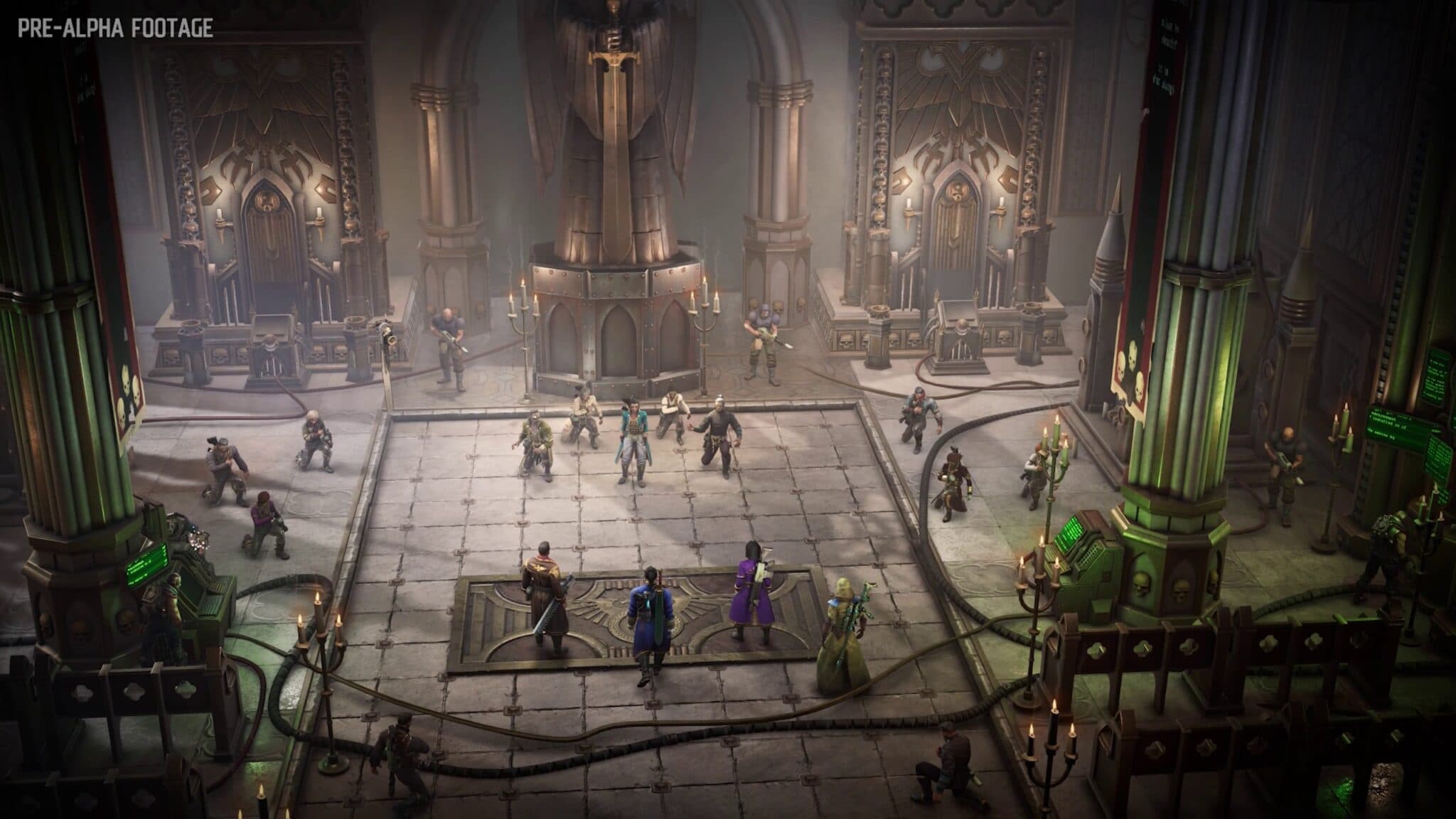
(~) : It seems like Space Marines and Sisters of Battle could also become companions. How do you handle the balancing if a Space Marine has to be significantly stronger than a normal human?
Alex Gusev: “While it’s true that a Space Marine is awesome in combat – you should keep in mind that your own party isn’t just random passers-by. By the time you meet the Space Marine, you’ll have already found rare weapons and equipment and gained experience in heroic missions. You may not be able to quite reach his level of physical ability, but some of your abilities will also be closed to him, as will certain weapons or armour. “
(~) : How is the item system supposed to work if the companions are so different? After all, a Space Marine would use completely different equipment than an Aeldari for example.
Alex Gusev: “Some unique companions, like something like the Space Marine, will have restrictions on what equipment they can use – some will be unique to them. But most types of weapons can be used by the majority of companions. Some will benefit more than others. Your Rogue Trader, for example, will also be able to use Aeldari weapons after learning how to do so. But an Aeldari Ranger will not use primitive human weapons simply out of sheer contempt.”
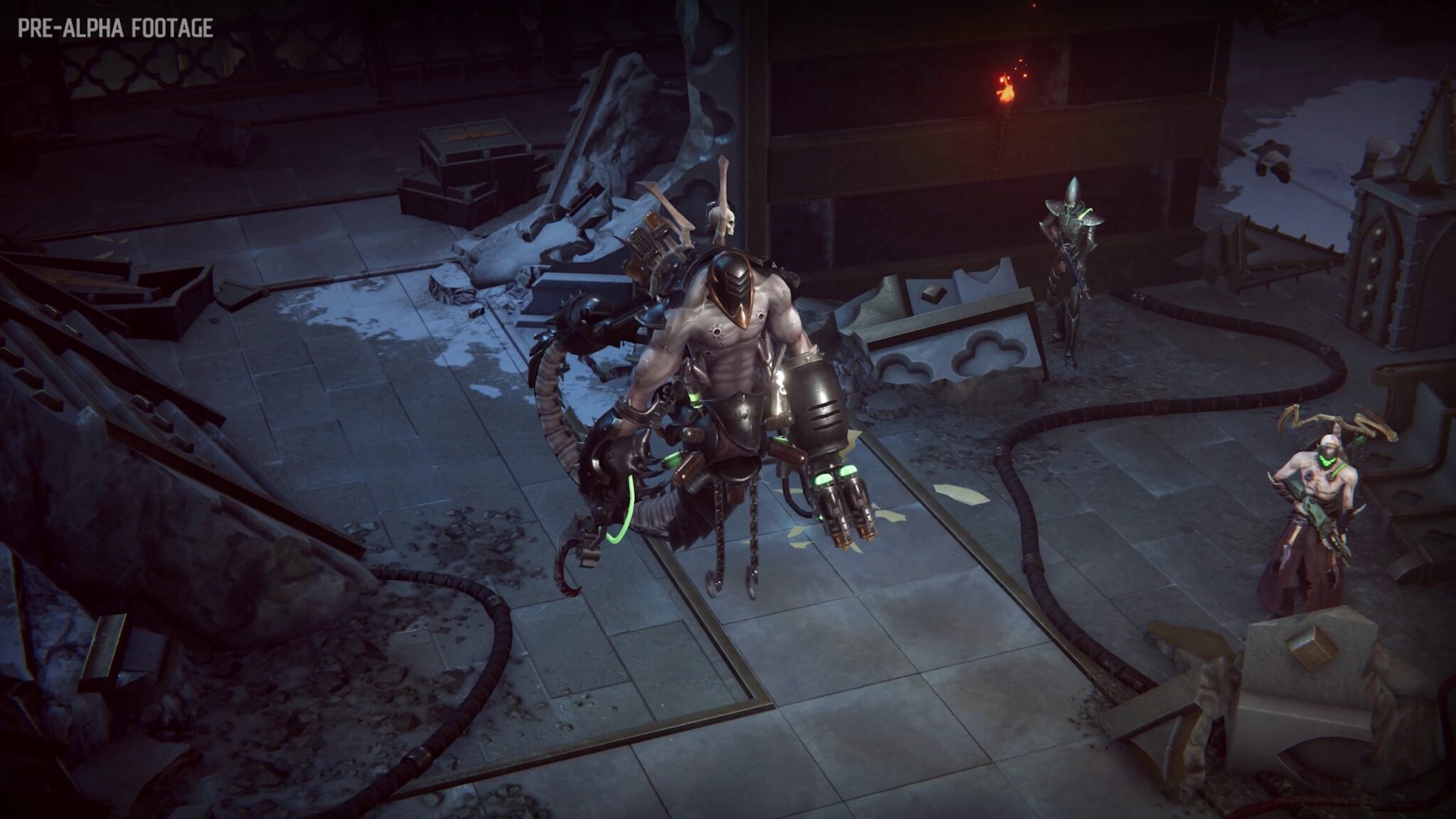
(~) : In Pathfinder 2, the stories of some classes have taken very interesting turns. Will Rogue Trader offer similarly extreme choices? For example, could I join Chaos?
Aley Gusev: “For us, dramatic choices and significant consequences are a defining part of what makes roleplaying games work. Through these choices, players change and affirm the role they take in the game world, and they allow the role-playing aspect to really come to life.
The mythic paths were a defining feature in Wrath of the Righteous, so you won’t encounter a similar system in Rogue Trader. But the choices and significant changes in later chapters that depend on the paths players will take, those will be here too. I would be spoiling too much if I elaborated on that. As for the Chaos question, I can only say this much: Why not? “

